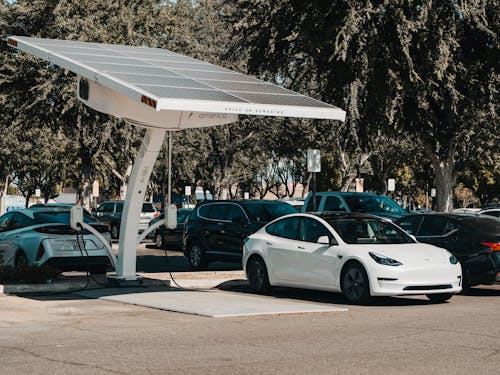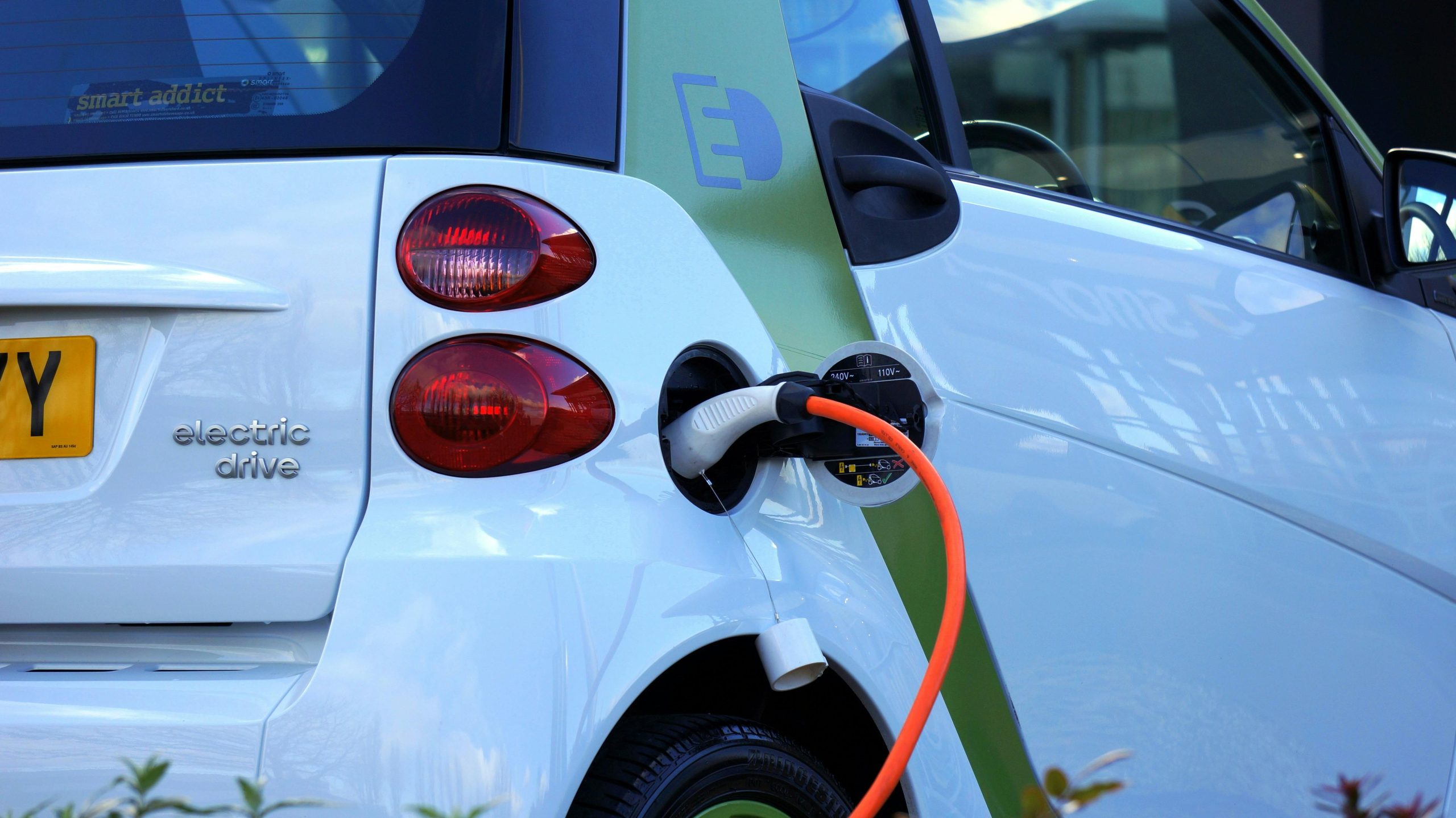The Shift Towards Electric Vehicles
As the world becomes increasingly aware of the environmental impact of traditional gasoline-powered vehicles, the electric car is emerging as a key player in the push toward sustainable transportation. Over the last decade, electric vehicles (EVs) have evolved from a niche market into a mainstream solution, with several automakers embracing the transition and governments implementing policies to support the shift. But despite the rapid growth of the electric car industry, the question remains: Are we truly ready for a future without gasoline?
The rise of electric vehicles is more than just a trend; it’s a pivotal moment in the history of the automotive industry. With concerns over climate change, fossil fuel dependence, and air pollution, EVs offer a potential solution to some of the planet’s most pressing issues. However, there are still significant challenges to overcome before electric cars can fully replace traditional gas-powered ones. From infrastructure limitations to consumer adoption, let’s take a closer look at the current state of electric cars and the path ahead.

Environmental Benefits: Reducing Carbon Emissions
One of the most compelling reasons to switch to electric cars is the environmental impact. Traditional internal combustion engine (ICE) vehicles are a significant source of greenhouse gas emissions, contributing to air pollution and climate change. According to the U.S. Environmental Protection Agency (EPA), transportation is responsible for nearly 30% of total greenhouse gas emissions in the country, with the majority coming from gasoline-powered vehicles.
Electric cars, on the other hand, produce zero tailpipe emissions. This means that, when powered by renewable energy sources, they can significantly reduce a car’s carbon footprint. In fact, a study by the Union of Concerned Scientists found that, on average, an electric vehicle produces less than half the emissions of a gasoline-powered car over its lifetime, even when accounting for the electricity required to charge it.
As governments around the world seek to meet climate goals, electric cars are seen as an essential part of the solution. Many countries, including the European Union and China, are implementing aggressive policies to phase out gasoline and diesel vehicles. Additionally, automakers are investing heavily in electric vehicle technology, with major players like Tesla, General Motors, and Volkswagen committing to electric-only futures.
Infrastructure: Building a Charging Network
While the environmental benefits of electric cars are clear, the infrastructure needed to support widespread adoption remains a major hurdle. Unlike gasoline vehicles, which rely on a vast network of fueling stations, electric cars require a reliable charging network to ensure that drivers can charge their vehicles on the go.
In many areas, charging infrastructure is still underdeveloped, particularly in rural or less densely populated regions. Public charging stations are not as ubiquitous as gas stations, and the charging process itself can be time-consuming compared to a quick stop at a gas pump. While some cities have made significant strides in expanding charging networks, the availability of charging stations remains a significant barrier to widespread adoption.
The solution to this problem lies in the expansion of charging infrastructure, both in public spaces and at home. For instance, many homeowners with electric vehicles choose to install a Level 2 home charging station, which can fully charge a vehicle overnight. However, for those without access to a garage or parking space, public charging stations are essential.
One promising development is the rise of fast-charging technology, which can reduce the time it takes to charge an electric car to just 30 minutes or less. As more automakers and companies invest in building these high-speed charging stations, the convenience of owning an electric car will increase significantly.

Range Anxiety: Overcoming the Fear of Running Out of Power
Another key challenge that electric cars face is range anxiety—the fear that a vehicle will run out of power before reaching a charging station. Unlike gasoline cars, which can travel hundreds of miles on a single tank of fuel, many electric vehicles still have a limited driving range, especially in comparison to their gasoline counterparts.
However, advances in battery technology are steadily addressing this issue. Many modern electric vehicles now offer ranges of 200 to 400 miles on a single charge, which is sufficient for most daily driving needs. For example, the Tesla Model S can travel over 370 miles on a single charge, and the upcoming Lucid Air boasts an impressive range of over 500 miles.
As battery technology continues to improve, the range of electric vehicles is expected to increase, making them even more practical for long-distance travel. In addition, the expansion of fast-charging networks will alleviate some of the concerns associated with longer trips, allowing drivers to quickly recharge their vehicles during extended journeys.
Cost: Are Electric Cars Affordable for the Average Consumer?
While electric cars have become more affordable in recent years, the initial cost of purchasing an EV can still be a significant barrier for many consumers. The price of electric vehicles tends to be higher than that of comparable gasoline-powered cars, mainly due to the high cost of the batteries used in EVs.
However, prices are gradually decreasing as battery technology improves and economies of scale are realized. Several automakers are already offering electric cars at competitive prices, with models such as the Chevrolet Bolt and Nissan Leaf providing affordable options for those looking to make the switch to electric.
In addition to the initial purchase price, electric cars offer significant savings over the long term in terms of maintenance and fuel costs. Electric vehicles have fewer moving parts than gasoline cars, meaning they require less maintenance and are less prone to wear and tear. Furthermore, the cost of electricity is generally lower than the cost of gasoline, and many drivers can charge their vehicles at home, further reducing costs.
Government incentives, such as tax credits and rebates, also help make electric vehicles more affordable. In many countries, buyers of electric cars can benefit from subsidies or financial incentives that lower the upfront cost, making EVs more accessible to a broader range of consumers.
Consumer Adoption: Changing Perceptions and Behavior
For electric cars to become the norm, consumers must embrace them as a viable alternative to traditional gasoline vehicles. While the environmental and economic benefits are clear, many people are still hesitant to make the switch due to concerns about range, charging infrastructure, and overall performance.
Changing consumer behavior is a gradual process, but it is happening. As electric vehicles become more widely available and affordable, more people are willing to give them a try. According to a report by the International Energy Agency (IEA), the number of electric cars on the road has increased dramatically in recent years, and sales of EVs are expected to continue rising as technology improves and infrastructure expands.
Public awareness and education will also play a critical role in this shift. Many people are unaware of the benefits of electric vehicles or are misinformed about their capabilities. By providing accurate information about the range, cost, and environmental impact of EVs, automakers and governments can help to accelerate the adoption of electric cars.

A Sustainable Future Without Gasoline?
As we look toward the future, it’s clear that electric vehicles have the potential to play a significant role in creating a more sustainable transportation system. The environmental benefits, cost savings, and advancements in battery technology make electric cars an increasingly attractive option for consumers and businesses alike. However, challenges remain, particularly when it comes to infrastructure, affordability, and consumer adoption.
The transition to a future without gasoline will not happen overnight, but the momentum is building. With continued investment in technology, infrastructure, and public education, we are well on our way to a world where electric cars are the norm, and gasoline vehicles are a thing of the past. The question is not whether we can have a future without gasoline—it’s how quickly we can get there.





